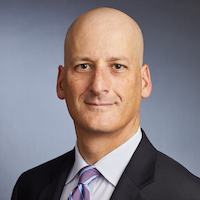Article
Mental Health Openness Improves Med Students' Attitudes
Author(s):
Medical students felt better about seeking mental health help after they learned of senior physicians who sought treatment for their own mental illnesses.

Andres Martin, MD, MPH
More openness from physicians about overcoming mental health issues could increase the likelihood that medical students will access care if they need it.
Andres Martin, MD, MPH, from the Child Study Center at Yale School of Medicine, and colleagues surveyed second-year medical students and conducted a physician panel and small-group discussion to learn the benefit of exposure to physicians with self-disclosed histories of having overcome mental illness. The investigators found that 91% of students agreed knowing veteran physicians who struggled with mental health issues, got treatment, and were doing well could make them more likely to seek care if they ever needed it.
Exposure to physician mental illness could improve stigma around psychiatry and of patients or colleagues who are affected by mental illness.
The investigators included second-year medical students at the Tel-Aviv University Faculty of Medicine’s New York State Program. The students completed 2 different assessments, 1 at the start and the other after completion of their curriculum’s intensive course in preclinical psychiatry.
The psychiatry course spanned 30 hours across 5 days and included traditional didactic; flipped curriculum; small group; and team-based learning components. The investigators designed the intervention, which was embedded into the course, to enhance the knowledge of clinical practice in psychiatry and to target stigmas associated with psychiatric treatments and patients with mental illnesses.
The intervention included 3 components: a 1-hour panel of 2 physicians—who had already taught the students for more than 20 hours—sharing their personal histories of mental illness (recognition, diagnosis, and treatment); 1-hour, small group sessions of 8 students and 1 faculty moderator which were lightly structured to discuss topics like disclosure, confidentiality, credentialing, impairment, and treatment; a 1-hour lecture focused on mental health and support resources available to students.
Students completed a personal information survey of 10 questions about role-modeling and help-seeking attitudes at baseline. The participants also completed 2 self-reported questionnaires—the Attitudes to Psychiatry and the Attitudes to Mental Illness—at the beginning and end of the intervention.
The Attitudes to Psychiatry assessed the students’ attitudes toward psychiatric patients; psychiatric illness; psychiatric treatment; psychiatric institutions; psychiatric knowledge base in clinical practice; psychiatric educations; psychiatry as a career choice; and psychiatrists. The Attitudes to Mental Illness consisted of 20 items and measured the students’ attitude toward mental illnesses and toward their causes, treatment, and impact on individuals and society.
Overall, 47 second-year students participated (53% women) in the study. More than 90% of the participants completed baseline and endpoint assessments. A majority of students had experiences with mental illness in a friend or relative (65%) or personally themselves (9%).
At baseline, 91% of students agreed knowing a physician who was further along in their careers and struggled with mental health issues, got treatment, and were doing well would make them more likely to get help if they ever needed it. Nearly 75% said they would reach out to the physicians if they knew they were receptive to sharing their experiences. Only 23% of students knew a physician with a mental illness.
Few students (12%) said it was a sign of weakness or inadequacy to receive help but would not judge others harshly. These students said others would judge them more negatively for getting help (75% average).
Almost every student 98% rated the intervention as “effective” or “highly effective.” Students appreciated the lived experience panel and were comforted by the fact that their instructors were concerned about the students’ mental well-being.
Increasingly, medical schools are becoming aware of mental health issues among trainees and work to improve the mental health of their students. Courses in medical school need to address the contributors to perfectionism in trainees and the barriers that keep senior physicians from modeling proactive self-care as a necessity.
The intervention could improve the medical school culture of perfectionism and silence and enhance students’ mental and emotional health.
“We believe that efforts such as this are timely and sorely needed, as the field of medicine seeks to better care of its own,” the investigators concluded.
The study, “Physician Self-disclosure of Lived Experience Improves Mental Health Attitudes Among Medical Students: A Randomized Study,” was published online in SAGE Journals





